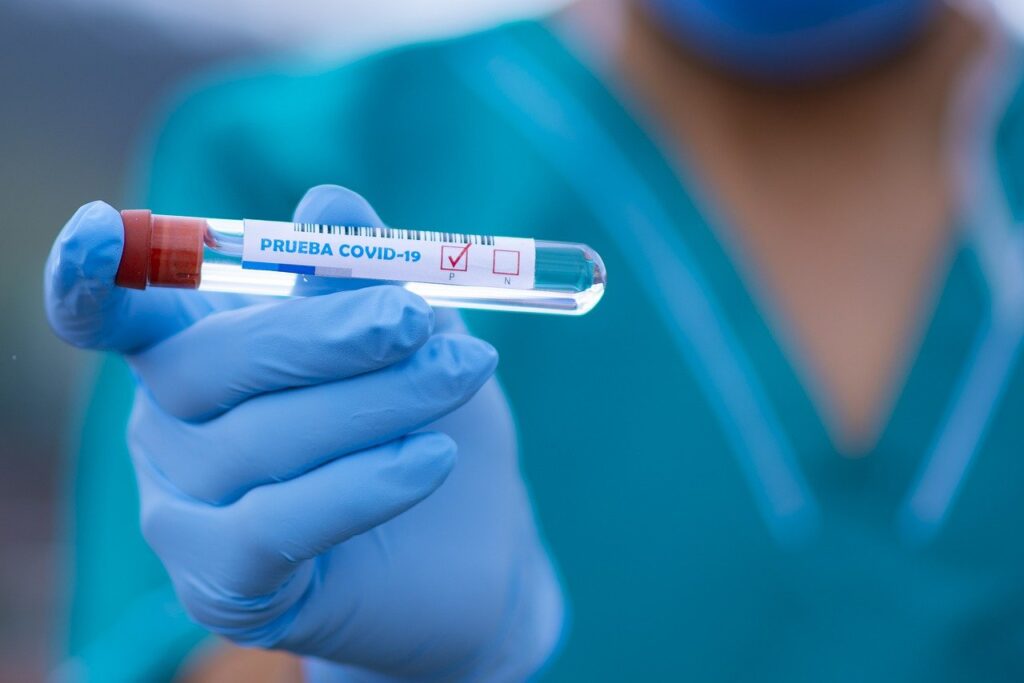Table of Contents
If you feel tired, are short of breath, and are developing a fever, it’s time to get a COVID test. With flu season beginning, a COVID-19 test will determine whether you have an active coronavirus infection and need to actively quarantine yourself, or whether you just have the seasonal flu. But with so many different types of COVID-19 tests currently available, how do you decide which test is right for you?

Types of COVID-19 Tests
You may have heard about the different types of COVID-19 tests, but are still not familiar with each test’s purpose, procedure, and degree of accuracy. Currently, there are two main categories of COVID-19 tests available: diagnostics and antibody tests. A COVID-19 diagnostics test helps you identify an active coronavirus infection, while an antibody test will inform you whether you were infected with the virus in the past.
Below, we will walk you through all the different types of COVID-19 tests currently available so that you have an in-depth understanding of the nature and purpose of each test.
COVID-19 Diagnostics Test
COVID-19 diagnostics tests use different methods to identify an active coronavirus infection. There are two main types of COVID-19 diagnostics test: PCR and antigen tests. A PCR test detects the virus’s genetic material, while an antigen test looks for proteins on the surface of the virus to diagnose an active COVID-19 infection.
PCR Test
A COVID-19 polymerase chain reaction (PCR) test, also known as molecular or RNA test, looks for the virus’s genetic material in your mucus or saliva to determine whether you are currently infected with the novel coronavirus. PCR tests are considered to be the gold standard of COVID testing, as they produce the most accurate results.
Your healthcare provider will ask you to take a PCR test if you demonstrate symptoms of COVID-19 to help them diagnose an active infection. You might also be asked to take a PCR test if your antigen test returned a negative result. PCR tests are very sensitive to the coronavirus. As a result, they can detect the virus with almost 100% accuracy if the procedure is conducted properly.
PCR Testing Procedure
Most PCR COVID-19 diagnostics tests are conducted using a nasal or throat swab. A healthcare provider will use a long swab to collect a mucus sample from the back of your throat or nose. Some PCR tests can be conducted using the patient’s saliva. The collected mucus or saliva sample is then sent to a laboratory for analysis. Patients can receive their test results within 24-72 hours.
PCR tests can be conducted inside a medical facility, in a drive-thru setting, or within the comfort of your home. Drive-thru testing is safe and convenient because it allows you to remain in your car for the duration of the test, lowering the chance that you might infect others or vice versa.
If you want to be particularly careful, or cannot leave your house for any reason, there are medical service providers which will send medical practitioners to test you at your home. Wherever you choose to get tested, be sure the medical service provider is properly licensed and performing the standard PCR test.
Antigen Test
An antigen test, commonly known as a rapid test, is another type of COVID-19 diagnostics testing that helps determine whether you are currently infected with the coronavirus. This type of COVID-19 diagnostics test detects proteins on the outer surface of the coronavirus to identify an active infection. These proteins, called antigens, are molecular structures on the surface of pathogens that trigger an immune response.
Unlike PCR tests, antigen tests are not very accurate. They produce relatively accurate positive results, but a negative antigen test result should be confirmed with a PCR test. If your antigen test returns a negative result, your healthcare provider will likely order a PCR test to confirm you don’t have an active COVID-19 infection.
Antigen Testing Procedure
The antigen diagnostics testing procedure is similar to a PCR test. A healthcare provider will perform a nasal or throat swab to collect a mucus sample from the patient. But unlike a PCR test, an antigen test can deliver your results within minutes to an hour. Most rapid COVID-19 tests use the antigen diagnostics method to identify active infection.
Antigen tests are usually conducted in outpatient clinics, emergency departments, and doctors’ offices. They are suitable for testing large numbers of people in a limited time period, such as testing travellers at airports to quickly identify infected persons. While antigen tests are cheaper and much quicker than PCR tests, they are more likely to miss an active infection due to their decreased sensitivity to virus particles.
COVID-19 Antibody Test
Unlike diagnostics tests, a COVID-19 antibody test is performed to determine whether you were infected with the coronavirus in the past. Also known as a serological test, an antibody test looks for antibodies in your blood to determine whether you have developed an adaptive immune response to the virus. Antibodies are defensive molecules produced by your immune system to help fight pathogens and neutralize their harmful effects on your health.
A COVID-19 antibody test cannot be used to diagnose an active infection, nor can they guarantee permanent immunity and protection from the coronavirus. However, they are helpful to health authorities for analyzing the prevalence of the pandemic in a given population. As well, antibody tests give scientists more information about the body’s response to the virus, which is essential knowledge for developing an effective vaccine.
Antibody Testing Procedure
Antibodies are present in your blood. As a result, antibody tests involve a blood test to detect these defensive molecules in your body. COVID-19 antibody tests are conducted in a central lab, hospitals, and doctors’ clinics. During the test, a healthcare professional will collect a blood sample from you, and then send the sample to a laboratory for analysis. You can expect to receive your antibody test results within 72 hours.
Get the COVID Test That Meets Your Needs
There are many types of COVID-19 tests, each employing different methods and procedures to determine your exposure to the coronavirus. You must choose a specific COVID-19 assessment method that satisfies the objective of your testing. If you can’t decide which test is suitable for your current needs, consult with a healthcare professional to seek guidance on making the correct decision.















